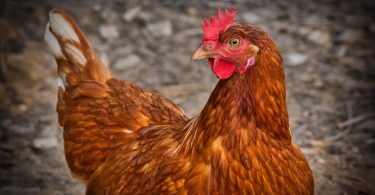Russian journalists called on the Organisation for Security and Cooperation in Europe (OSCE) to investigate rights violations against journalists in Ukraine.
Russian journalists called on the Organisation for Security and Cooperation in Europe (OSCE) to investigate rights violations against journalists in Ukraine. The RUJ or Russia Union of Journalists, urged OSCE to investigate crimes committed against the media members that work in conflict zones.
Ashot Djazoyan, the union’s secretary, noted that there have been more than 80 cases of violations of journalists rights in Ukraine since the beginning of the crisis back in November.
PressTv quoted Djazoyan as saying “OSCE could actually set up a group of journalists to launch investigations starting from this story – the Ukrainian conflict – in order to prevent further attempts to put journalists to torture and to violate their rights..”
This action was the result of the killing of three Russian Journalists covering events in the Southeastern areas of Ukraine. However,this is not the only case of Russian journalists dying on assignment.
Igor Kornelyok and Anton Voloshin, correspondents for state TV broadcaster VGTRK, died on June 17th after being hit by mortar fire near the village of Metallist. Russian media reported that Kornelyuk and his colleagues, sound engineer Anton Voloshin and cameraman Viktor Denisov, had travelled to Metallist to film local resident flight from the conflict area.
According to the reports, the crew seperated at a Separitists’ checkpoint, Denisov staying with residents whilst the others walked with a group of separitists. The shelling began minutes later, killing Voloshin instantly and wounding Kornleyuk, who later died in hospital.
Activism and journalism
Russia’s Investigative Committee said in a statement on July 9th that they suspected 31 year old pilot Nadezhda Savchenko had tipped off Ukrainian troops to the journalists location. Savchenko is now in a Russian detention centre, but there are two explanations for how she got there.
Moscow states that she crossed the border voluntarily, dressed as a refugee with no papers. Ukraine has a different view. Andriy Lysenko from Ukraine’s National Security and Defence Council was quoted as say that Savchenko had been kidnapped, whilst the president has requested her return.
Anatoly Klyan, 68, Cameraman for Channel One, died at a local hospital from bullet wounds to his abdomen on June 30th, in Donetsk, Ukraine. Klyan was traveling to a military base outside Donetsk, a trip organised by pro-Russian separatists with the self-declared Donetsk People’s Republic.
The popular broadcaster Ekho Moskvy said that late on June 29, separatists told journalists that they had negotiated the surrender of a Ukrainian arm unit and invited journalists along to film soldiers being reunited with their mothers. However the bus came under with it approached the base and was forced to retreat (as can be seen on this link).
Russian journalist Orkan Dzhemal, who was there during the attack, told the Russian newspaper Novaya Gazeta that the women on the bus had not been mothers, but pro-Russian activists. Echo Moskvy (Translated as Echo of Moscow) reported on July 4th that a DPR official had been arrested in connection to the bus trip.
Vyacheslav Veremiy, 32, reporter for the kiev-based newspaper Vesti, died in hospital after being shot and beaten with baseball bats by a group of armed masked men whom he had reportedly filmed earlier that day. His beating was captured on film and can be seen here, but I must warn you it’s a brutally uncomfortable watch.
The need to investigate
Akhmednabi Akhmednabiyev, 53, deputy editor of Novoye Delo and contributor to Kavkazsky Uzel, was shot at 7am outside his house in Semender, by a gunman who quickly fled in his car. Grigory Shvedov, Chief Editor of Kavkazsky Uzel, told CPJ that he believed the killing to be politically motivated and connected to his journalism.
Akhmednabiyev had previously been attacked in January 2013, but this attempt at murder was put down as property damage by the police. In June, prosecutors said they would address the case by July 10th. He was shot on July 9th.
Not only are journalists being shot and beaten, they also face imprisonment. Journalist and activist Valery Uskov has been held in a pre-trail detention centre for five months. Uskov was arrested alongside his colleague Baidariko (currently out on bail) after an unidentified source claimed to have compromising information about the Zlatoust Mayor, Vyacheslav Zhilin.
Yet upon arriving at the meeting point, they found not an informant, but instead a bag of firearms. They were instantly arrested by the police who were already on the scene. Police have the number of the ‘informer’ but as yet appear to have made little or no attempt to identify him.
Johann Bihr, the head of the Reporter without Borders Eastern Europe and Central Asia desk, is extremely worried about the two journalists stating that “The circumstances of the journalists’ arrest and the conduct of the trial are highly suspect and suggest the case was fabricated in order to silence them.”
It is no surprise that Russian journalists are calling for investigations into rights violations, when they face murder, assault and imprisonment, simply for attempting to report the truth.
With the current crisis in Russia and Ukraine, Russian journalists face greater danger than ever, and with multiple varying stories spread by each of the three powers involved (Moscow, Kiev and the Donetsk People’s Republic,) their job is even more important than ever.
What do you think? Have your say in the comments section below.








